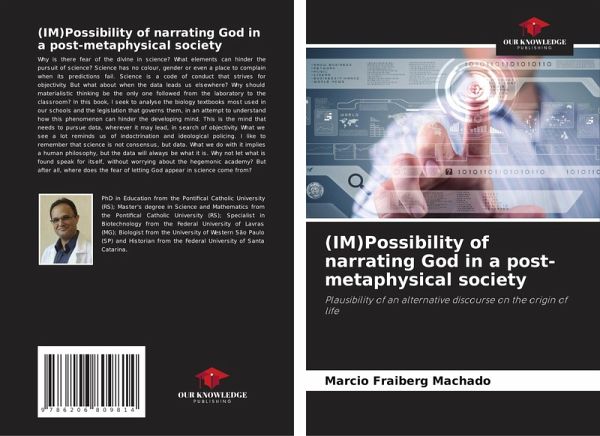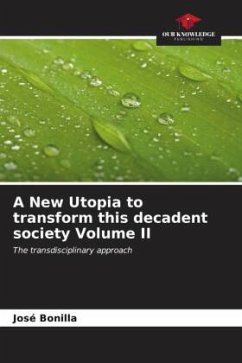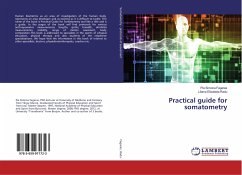
(IM)Possibility of narrating God in a post-metaphysical society
Plausibility of an alternative discourse on the origin of life
Versandkostenfrei!
Versandfertig in 6-10 Tagen
37,99 €
inkl. MwSt.

PAYBACK Punkte
19 °P sammeln!
Why is there fear of the divine in science? What elements can hinder the pursuit of science? Science has no colour, gender or even a place to complain when its predictions fail. Science is a code of conduct that strives for objectivity. But what about when the data leads us elsewhere? Why should materialistic thinking be the only one followed from the laboratory to the classroom? In this book, I seek to analyse the biology textbooks most used in our schools and the legislation that governs them, in an attempt to understand how this phenomenon can hinder the developing mind. This is the mind th...
Why is there fear of the divine in science? What elements can hinder the pursuit of science? Science has no colour, gender or even a place to complain when its predictions fail. Science is a code of conduct that strives for objectivity. But what about when the data leads us elsewhere? Why should materialistic thinking be the only one followed from the laboratory to the classroom? In this book, I seek to analyse the biology textbooks most used in our schools and the legislation that governs them, in an attempt to understand how this phenomenon can hinder the developing mind. This is the mind that needs to pursue data, wherever it may lead, in search of objectivity. What we see a lot reminds us of indoctrination and ideological policing. I like to remember that science is not consensus, but data. What we do with it implies a human philosophy, but the data will always be what it is. Why not let what is found speak for itself, without worrying about the hegemonic academy? But after all, where does the fear of letting God appear in science come from?












